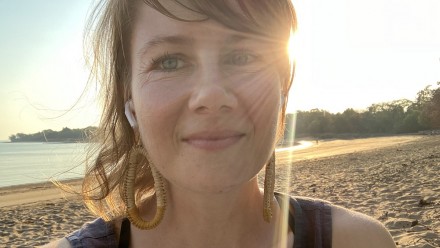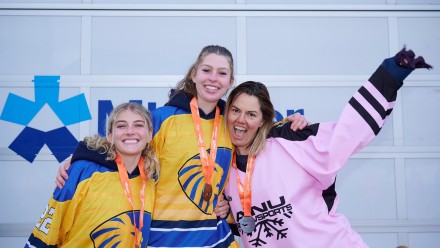Improving Aboriginal and Torres Strait Islander Health
In 2018 – despite the Close the Gap policy - we still see health inequality in Indigenous health outcomes. Life expectancy is lower for both men and women compared to non-Indigenous people. Health delivery, child and maternal health and chronic disease impact on the quality of life of Aboriginal and Torres Strait Islander people.
Government, health practitioners, Indigenous health practitioners and community healers need to work together and to listen. The top-down approach set by government has not worked (Close the Gap report -download PDF 15.3MB) and Indigenous people are still behind across all health indicators. Improving Indigenous health is a critical issue however treating the physical is not the only answer – caring for the whole person, their wellbeing and understanding their circumstances must be included.
The Australian National University (ANU) has made a commitment to increase the number of Indigenous students, including those entering the Medicine program. The ANU Medical School offers scholarships for our students who study medicine and support them through their degree. The Indigenous Health Stream (IHS) gives medical students interested in Indigenous health an understanding of Aboriginal and Torres Strait Islander history, culture and health issues. This means that those students undertaking the IHS will better understand the health of Aboriginal and Torres Strait Islander people including cultural and holistic health.
The Medical School currently has eight Indigenous medical students across the Doctor of Medicine and Surgery (MChD) and is proud to have graduated six Indigenous doctors since the program began in 2014. The IHS is nationally acknowledged as producing leaders in Indigenous health, with many students listing the ANU Medical School as their number one pick due to this. The IHS stream has grown to have 40 students across the four years.
ANU has a strong focus on increasing Aboriginal and Torres Strait Islander staff and students. Through the Indigenous Health Unit, the Medical School would like to grow Indigenous medical student numbers, firstly filling the four existing places offered each year. Conjointly the growing of the IHS by 20% will occur, building the number of medical doctors who understand and empathise with Aboriginal and Torres Strait Islander people and are willing to work within a holistic framework.
The Aboriginal and Torres Strait Islander Health team at the Medical School has three new staff all with a passion and experience in Indigenous health. Dr Stewart Sutherland, Chair of Indigenous Health is a Wiradjuri man with over a decade of experience working in Indigenous health. In more recent years, he has focused on identity and mental health particularly Social and Emotional Wellbeing of the Stolen Generations.
Ms Amanda Wingett, Associate Lecturer is a Yandruwandha and Yawarrawarrka woman from South Australia. Amanda has a Master of Public Health Nutrition and has a wealth of experience in health recently coming from the Australian Medical Association as a policy advisor in Indigenous Health and previously in Queensland State Health department.
Mrs Kerrie Hogan, Coordinator for Indigenous Health and Student Engagement is a Wonnarua woman. She has worked at the ANU for nearly 10 years, supporting Indigenous students as well as experience in outreach and communications. Kerrie has taught literacy and numeracy to Indigenous youth and adults and Indigenous studies to 1st year nursing students.
This combined wealth of experience, knowledge and teaching is a great benefit for the ANU Medical School as well as coordinating the IHS for medical students across their degree program.














